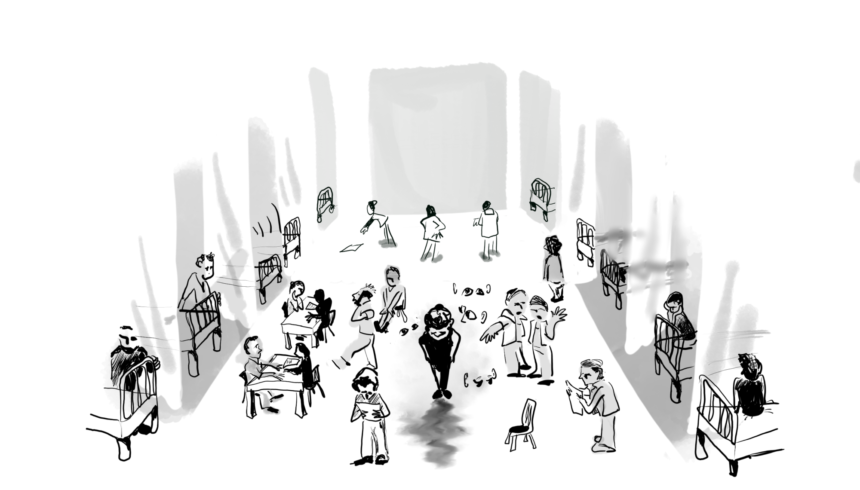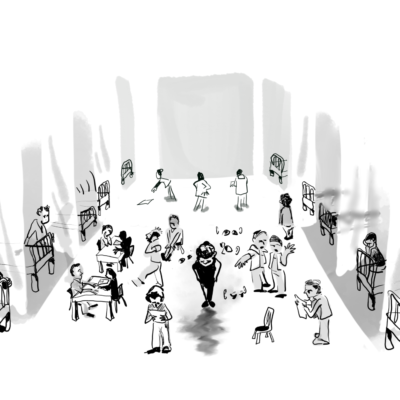JRS UK worked with people placed at Napier barracks in Kent for two years from when it was repurposed as asylum accommodation in autumn 2020. In September 2021, the government deployed emergency powers to extend the site’s use for this purpose for another five years. This move came despite significant criticism of facilities at the site, including a judgment from the High Court declaring them inadequate and the Home Office guilty of employing unlawful practices. Furthermore, the use of emergency powers circumvented consultation with local community that such an extension would normally require.
Through the voices of those who have been placed there, this research explores life in this quasi-detention camp on a hill in Folkestone. It describes the effects upon people who have fled hostilities, abuses and life-threatening situations. It exemplifies how placing asylum seekers into remote camps is a punishing, confusing, often re-traumatising experience for those who endure it.
The government plans to make sites like Napier the new normal for asylum accommodation, and this report demonstrates how profoundly destructive that would be for all those involved.
This report is published as Illegal Migration Bill is before parliament. One of the many destructive things the Bill would do is to hugely expand the use of detention, and to allow for detention is spaces like Napier. If the Bill is made law, thousands of women, men, and children, barred from the asylum system that ought to protect them, will be pushed to the margins and behind closed doors, in spaces like Napier. This report gives insight into how destructive that would be.
Read the report by Dr Sophie Cartwright



